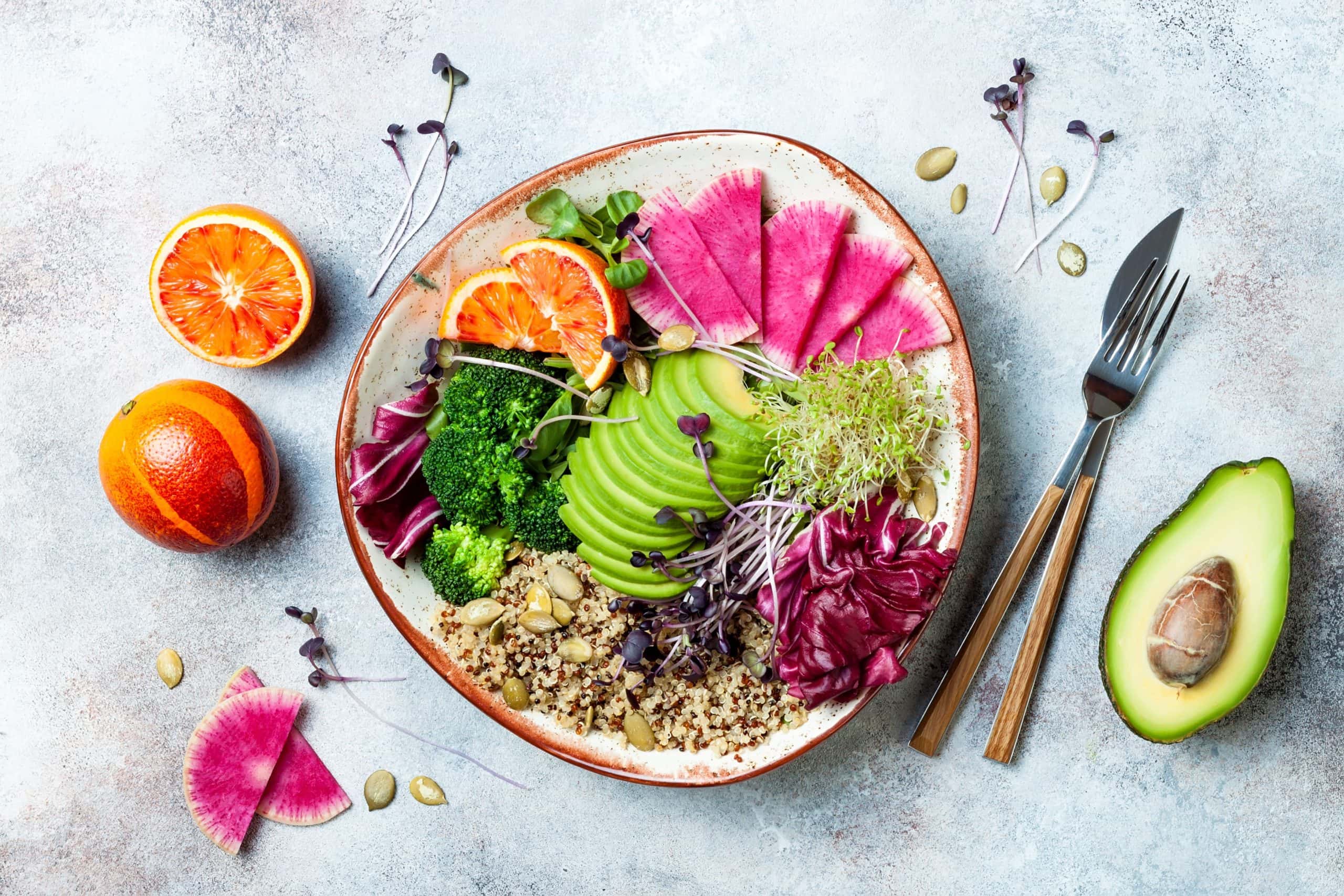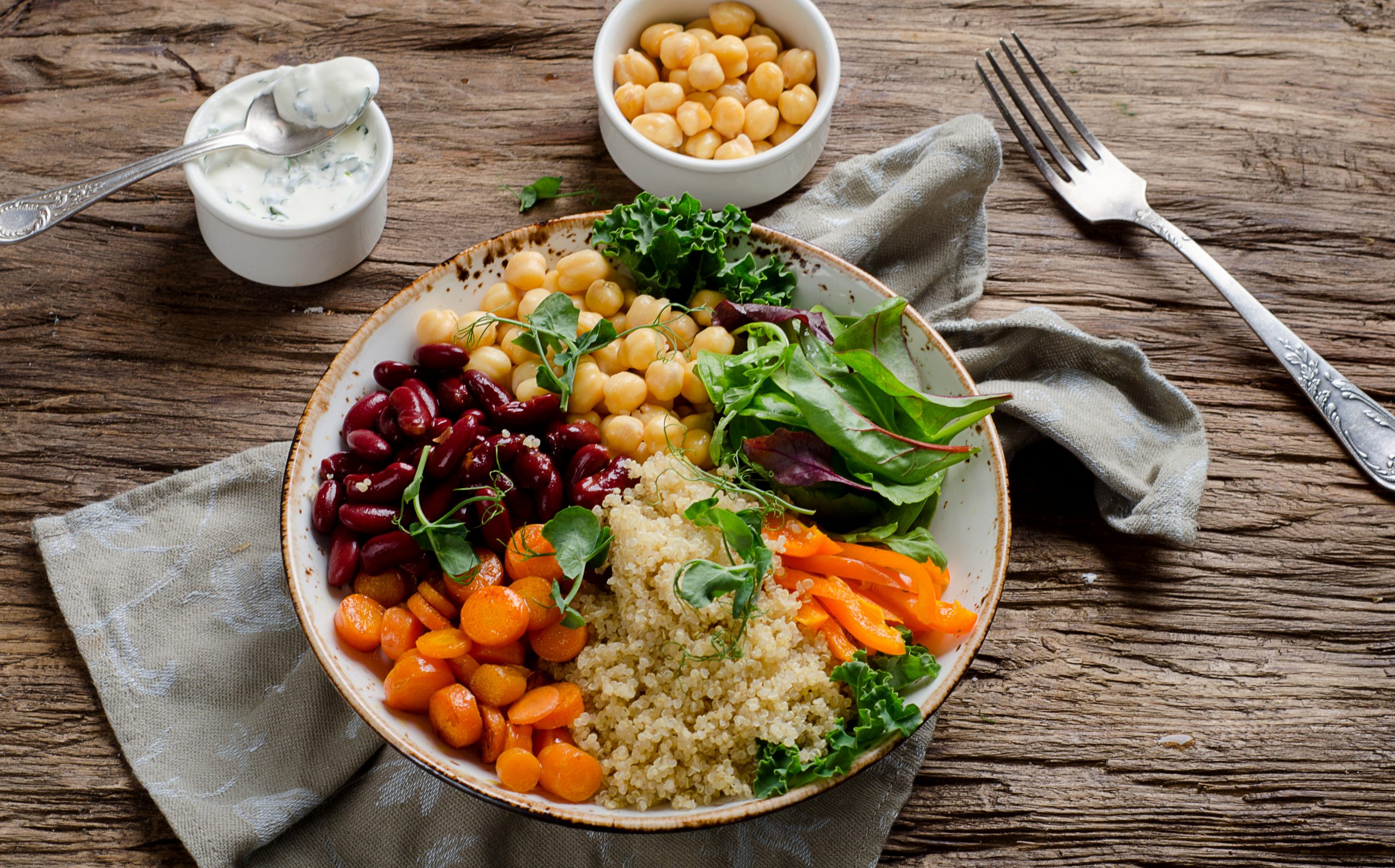Embark on a journey towards optimal health and well-being with our comprehensive guide to being a healthy vegetarian. Discover the nutritional benefits, meal planning strategies, and ethical considerations that empower you to thrive on a plant-based diet.
From understanding the essential nutrients found in plant-based foods to creating balanced and satisfying meals, this guide provides practical tips and insights to help you make informed choices and achieve your health goals.
Nutritional Benefits of a Vegetarian Diet
Vegetarian diets offer a plethora of nutritional advantages, providing individuals with a rich array of vitamins, minerals, and nutrients. Compared to non-vegetarians, vegetarians typically consume higher amounts of these essential nutrients, contributing to overall health and well-being.
Remember to click vegetarian daily meals to understand more comprehensive aspects of the vegetarian daily meals topic.
Fiber, Being a healthy vegetarian
Vegetarian diets are renowned for their high fiber content, which plays a crucial role in maintaining digestive health. Fiber promotes regularity, prevents constipation, and aids in weight management. Plant-based foods such as fruits, vegetables, legumes, and whole grains are excellent sources of dietary fiber.
Antioxidants
Fruits and vegetables, abundant in vegetarian diets, are rich in antioxidants. These compounds protect cells from damage caused by free radicals, reducing the risk of chronic diseases such as heart disease and cancer.
Discover the crucial elements that make lacto vegetarian foods the top choice.
Vitamins and Minerals
- Vitamin C:Citrus fruits, berries, and leafy green vegetables provide ample amounts of vitamin C, essential for immune function and collagen production.
- Iron:Legumes, fortified cereals, and leafy green vegetables are rich in iron, vital for red blood cell production and oxygen transport.
- Calcium:Calcium, crucial for bone health, can be obtained from fortified plant-based milks, leafy green vegetables, and tofu.
- Vitamin B12:Vitamin B12, necessary for nerve function and red blood cell production, is primarily found in animal products. However, fortified plant-based foods and nutritional supplements can provide adequate amounts for vegetarians.
Planning a Healthy Vegetarian Meal Plan
Planning a healthy vegetarian meal plan is essential for ensuring you meet all your nutritional needs. Here are some practical tips to help you create balanced and nutritious vegetarian meals.
Discover how pesco pollo vegetarian benefits has transformed methods in RELATED FIELD.
Meal Planning
Plan your meals in advance to ensure you have a variety of nutrient-rich foods throughout the day. Consider the following:
- Include all food groups:Aim to include fruits, vegetables, whole grains, legumes, nuts, and seeds in every meal.
- Variety is key:Choose a wide variety of foods from each food group to ensure you’re getting a range of nutrients.
- Cook meals at home:This gives you control over the ingredients and allows you to create healthier meals.
Food Combinations
Combine foods that complement each other nutritionally. For example:
- Legumes and whole grains:Combine beans or lentils with brown rice or quinoa for a complete protein source.
- Fruits and vegetables:Pair fruits with vegetables for a boost of vitamins, minerals, and antioxidants.
- Nuts and seeds:Add nuts or seeds to salads, smoothies, or yogurt for healthy fats and protein.
Portion Control
Pay attention to portion sizes to avoid overeating. Use measuring cups and spoons to ensure you’re consuming appropriate amounts.
Protein Intake
Vegetarians need to pay special attention to protein intake. Good sources of plant-based protein include:
- Legumes (beans, lentils, chickpeas)
- Tofu and tempeh
- Nuts and seeds
- Quinoa
- Edamame
Addressing Common Challenges
Embracing a vegetarian lifestyle offers numerous health benefits, but it also presents potential challenges. Understanding these challenges and developing effective strategies to address them is crucial for maintaining a healthy and balanced vegetarian diet.
Vitamin B12 Deficiency
Vitamin B12 is primarily found in animal products, making vegetarians at risk for deficiency. This vitamin is essential for red blood cell production, neurological function, and DNA synthesis. To ensure adequate intake, vegetarians can consider:
- Supplementation:Regular intake of vitamin B12 supplements can effectively prevent deficiency.
- Fortified Foods:Choosing fortified cereals, nutritional yeast, and plant-based milks can provide a reliable source of vitamin B12.
- Certain Plant-Based Foods:Some plant-based foods, such as tempeh and certain types of mushrooms, contain small amounts of vitamin B12.
Social Pressures
Vegetarians may face social pressures from family, friends, or colleagues who do not share their dietary choices. To navigate these situations effectively:
- Communicate Your Values:Explain your reasons for choosing a vegetarian lifestyle and emphasize its benefits.
- Be Respectful:Understand that others may have different dietary preferences and respect their choices.
- Be Prepared:When attending social events, bring your own vegetarian dishes or ask about vegetarian options in advance.
Ethical and Environmental Considerations
Vegetarianism is often motivated by ethical concerns about the treatment of animals in factory farming. The intensive farming practices used to produce meat, eggs, and dairy can lead to overcrowding, unsanitary conditions, and painful procedures like debeaking and tail docking.
Vegetarianism offers a way to reduce the demand for animal products and support more humane farming practices.The environmental benefits of vegetarianism are also significant. Meat production is a major contributor to greenhouse gas emissions, water pollution, and deforestation. By reducing meat consumption, vegetarians can help mitigate these environmental impacts.
Further details about pescatarian bodybuilding meal plan is accessible to provide you additional insights.
For example, a study by the University of Oxford found that a vegan diet produces 73% fewer greenhouse gas emissions than a meat-based diet.
Animal Welfare
Factory farming practices often involve the confinement of animals in cramped and unsanitary conditions, leading to health problems and suffering. Vegetarianism promotes animal welfare by reducing the demand for animal products and supporting more humane farming practices.
Environmental Impact
Meat production is a major contributor to greenhouse gas emissions, water pollution, and deforestation. By reducing meat consumption, vegetarians can help mitigate these environmental impacts. A vegan diet produces 73% fewer greenhouse gas emissions than a meat-based diet.
Vegetarian Cuisine and Recipe Ideas: Being A Healthy Vegetarian
Vegetarian cuisine offers a diverse and flavorful culinary experience that encompasses a wide range of cultures and traditions. From traditional Indian curries to innovative plant-based dishes, vegetarian cuisine showcases the versatility and deliciousness of plant-based ingredients.
Here are some popular vegetarian dishes from different cultures:
Indian Vegetarian Dishes
- Palak Paneer: A creamy spinach dish with soft paneer cheese
- Chana Masala: A flavorful chickpea curry with aromatic spices
- Vegetable Biryani: A fragrant rice dish layered with vegetables and spices
Mediterranean Vegetarian Dishes
- Falafel: Crispy chickpea balls served with hummus or tahini sauce
- Spanakopita: A flaky pastry filled with spinach and feta cheese
- Baba Ghanoush: A creamy eggplant dip with garlic and lemon
East Asian Vegetarian Dishes
- Pad Thai: A stir-fried noodle dish with vegetables and tofu
- Mapo Tofu: A spicy tofu dish with fermented bean paste and Sichuan pepper
- Kimchi Pancake: A savory pancake made with fermented cabbage and vegetables
Vegetarian Cooking Demonstrations
- Vegetable Stir-Fry: A quick and easy way to prepare a nutritious and flavorful vegetarian meal
- Homemade Hummus: A creamy and versatile dip made from chickpeas
- Vegetarian Chili: A hearty and comforting dish perfect for cold weather
Final Wrap-Up
Whether you’re seeking improved health, ethical alignment, or environmental sustainability, being a healthy vegetarian offers a transformative path. Embrace the flavors and diversity of plant-based cuisine, and experience the profound benefits that a plant-forward lifestyle has to offer.
Essential FAQs
Is it possible to get enough protein on a vegetarian diet?
Yes, vegetarian diets can provide adequate protein intake. Plant-based sources rich in protein include beans, lentils, tofu, tempeh, nuts, and seeds.
How can I ensure I’m getting enough vitamin B12 on a vegetarian diet?
Vitamin B12 is primarily found in animal products. Vegetarians can obtain B12 through fortified foods, such as plant-based milk and cereals, or by taking supplements.
Are there any social challenges associated with being a vegetarian?
In some social settings, vegetarians may encounter misunderstandings or pressure to consume animal products. Mindful communication and education can help address these challenges.




